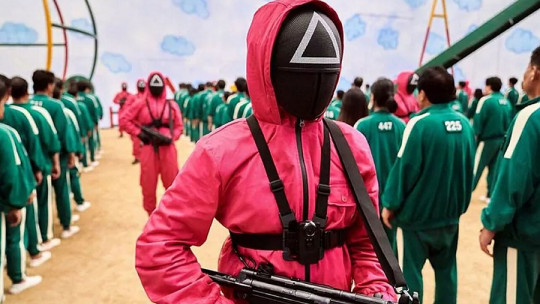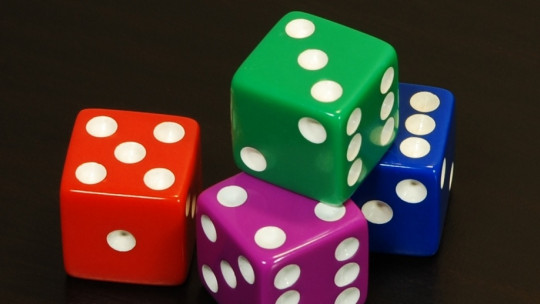The Squid Game is the series that generated all kinds of reactions after its great success on the Netflix platform perhaps because of its large amount of violence, brutality and blood.
But now is the time to put in order everything that the series presented to us, point by point and from a psychological perspective.
The Squid Game, from the perspective of Psychology
In The Squid Game we see different characters with something in common: they are desperate and in a vulnerable situation due to the large number of economic problems they face in their lives, when suddenly they are presented with the opportunity to win a large sum of money by simply participating in a series of children’s games, but where losing in any of them means death.
psychology of money
The series begins with the story of a man who lives in one of the not so privileged neighborhoods of his city, with a rather disordered life and full of debt due to his addiction to gambling machines, and who for these same reasons is invited to a bloody game that promises you a lot of money if you are left alive at the end of it.
This is where the importance of money as a way to meet the most basic needs of each person comes into play in order to affect the rational way in which decisions are made. Money is established as the main protagonist of the series, making it clear that it is directly linked to our survival within society and our behavior within it, being a dominant factor in our actions.
Through this series we wanted to convey to the audience the importance of money in our lives, how it dominates our behavior, and make us reflect on this and on what we would do in the players’ situation Even if we have to override our moral principles? Is money so important, influential and dominant in our lives and in today’s society that we would go so far as to attack our loved ones in order to maintain a privileged position?

Making hasty decisions in an environment blinded by need and greed
In each chapter we can see that the characters go through different situations of vulnerability in their lives: extreme poverty, terminal illness, forced migration, or different types of aggression.
And it is the vulnerability in which they live and the aggressions they face that causes the impulse to survive to appear at different times and take control of the situation in unrational and balanced ways making them act aggressively.
Surely several participants regretted the decisions they made while they were experiencing strong emotions and found themselves in that situation where not only money was at stake, but also their lives, and where it is common for emotional kidnapping situations Although all the participants want to come out alive after each test and continue advancing to get closer and closer to the juicy prize, it is indisputable that the ambition and tension between themselves to seek the same goal forces them to make wrong decisions.
Competitiveness, ambition and violence as a portrait of our society
It is thought that the series tries to reflect the competitive society in which we live, telling a story about people who at first struggle with the challenges of everyday life, but who at the end of it always find themselves vulnerable in the same place where they started no matter what. what they do. In this way, comes this fierce competition that we see as fictitious and that promises players that if they are committed enough to do anything, in the end they will change their lives.
It’s actually not much different from the society we live in today, where You see life as a competition or as an individual sport where being very competitive and not collaborating is the best way to achieve personal progress and ultimately get out of the “vulnerable position” where we find ourselves.
What are the consequences?
The clearest consequence of seeing this type of highly explicit content is the normalization of violence, so that even in some chapters the need for this is justified in terms of the end to any means; Several participants lose any type of empathy, characters appear with stories and emotions with which we have felt identified and that at a certain point we do not question or reflect on their most impulsive decisions.
Therefore, sometimes it can be problematic for this type of content to go viral that repeatedly can desensitize us to violence, to which we end up getting used episode after episode, looking for strong emotions that each time have less emotional impact than the previous one, but they do have an impact on our brain. These representations encourage us to stop reacting to this type of content, so that we can minimize it or even normalize it in real life and in our society, which would end up because of this desensitization, legitimizing social injustice, dehumanizing and losing the empathy between the people who make it up, along with their sense of belonging and community.









